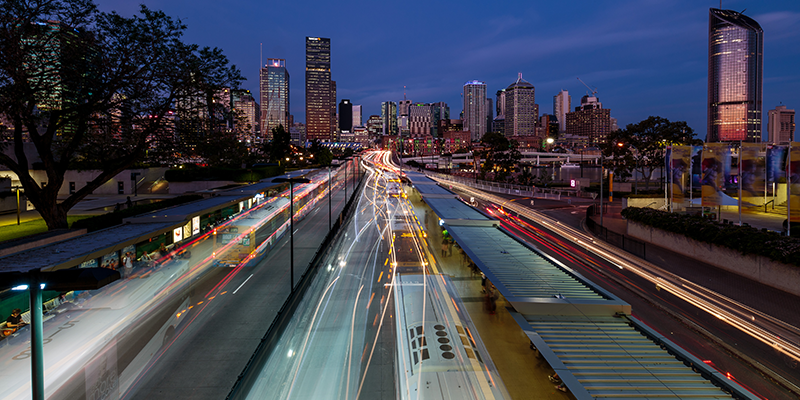How much of your life is spent commuting? Have you ever sat down and calculated that time?
If you live in the United States, which ranks 10th in the world in terms of average commute time, and your one-way commute is 25 minutes, you spend the equivalent of eight 24-hour days commuting over a year.
If your commute was 28 minutes, the average commute time in the UK would take you nine days (based on 24 hours per day) or the equivalent of 13,216 minutes. If you convert this time to a traditional eight-hour workday, the calculated commute time will be longer than the annual leave you are allowed, which is 27 days compared to 25 days.
If you live in South Korea, which has the longest commute in the world, and the one-way commute time is 74 minutes, then you will spend 37,148 minutes traveling between home and office every year, which is equivalent to 25 days and 19 hours. Considering that South Korea has an average of 10 days of paid holidays per year, it will be slightly unbalanced in comparison.
Sadly, our commutes only seem to be getting worse. British commuters now spend an extra five minutes commuting each day compared to a decade ago, which equates to an additional 20 hours a year spent on congested roads and crowded trains.
In the United States, the average commute time is 20% longer than in the past. According to a U.S. Census Bureau survey, workers now spend an average of 26 minutes commuting to work. The figure is the highest since the U.S. Census Bureau began tracking the data in 1980.
It’s perhaps no surprise that commuting makes us miserable. The Office for National Statistics survey found that “commuters generally have lower life satisfaction, are less likely to feel the meaning of daily activities, have lower happiness indexes, and have higher anxiety than non-commuters.” If your commute takes longer than an hour, your happiness will gradually decrease with each additional minute.
What Happens if We Stop Commuting?
“Washington Post” reporter Christopher Ingraham said stopping commuting would have a huge impact. “Imagine the huge impact of eliminating people’s commute time]. Multiply the 2 hours saved per day by 250 workdays a year, and that’s an additional 500 hours saved a year. Multiply that time by 3.6 million workers, and that’s the equivalent of Reinvesting 1.8 billion man-hours of potential productivity back into the economy, equivalent to 900,000 full-time jobs.”
He added:“If you give a person 2 hours of free time now, he may not spend that time working. He may watch TV, play Candy Blast, drink beer with friends, or do something else. It must be a fruitful thing. But over time, people will have more time to deal with daily life, more time to take care of their children, body, and marriage, and be able to rest better and work better. In short, The benefits of stopping commuting are many.”
Path to Happiness
Since long commutes rob us of our happiness, commuting times should be shortened to increase our happiness levels. In 2018, Time Out magazine surveyed shorter-than-average commutes (only 15 to 30 minutes on average, compared with the city average of 39 minutes) and found that it improved Londoners’ happiness even more than sex.
Happiness researchers have even quantified how much our happiness would increase if we could shorten our commutes. In his book, “Thriving: Finding Happiness the Blue Zones Way,” National Geographic staff member and author Dan Buettner put the figure at $40,000.
Is it just a coincidence that the ten happiest countries in the world (as ranked by the United Nations’ World Happiness Report) all have shorter commute times than the global average of 41.6 minutes? Norway, which ranks high on the happiness index, has a one-way commute time of 33 minutes; Denmark, 29 minutes; Finland and Sweden, 21 minutes.
In addition, happiness is good for career development. A recent study by economists at the University of Warwick in the UK showed that happy employees can increase productivity by 12%. “Positive emotions can energize people,” the team notes in the report. Happy employees also become more effective collaborators and even better leaders.
Ideal Commute
What makes an ideal commute? The answer may not be what you expect. Surveys show that the ideal commute does not require commuting at all. A survey of more than 1,000 workers in San Francisco found their ideal one-way commute is 16 minutes. Less than 2% expect their commute to be less than four minutes, and only 1.2% do not expect to commute at all.
People want their offices to be appropriately distanced from their homes, so they can use the commuting time to relieve the psychological stress of the day. And this is scientifically supported. There’s now a growing body of research showing that “active commuting” (including walking or biking) can make life better, and may even be as important to happiness as marriage or a raise.
If the ideal commute for most people is a 16-minute walk each way each day, how should businesses respond? “Gone are the days of the Victorian era where employees would spend an unproductive period before heading to a central location and working at fixed times each day,” said Richard, CEO of Regus UK. “Businesses of all sizes [should] investigate viable flexible working options that enable employees to work closer to home and change their working hours to better suit their surroundings,” Morris said.
If, as the ancient Greek historian Thucydides said,”The secret of happiness is freedom,” then for the world’s weary commuters, being able to choose where to work and how to get there has extraordinary implications.



